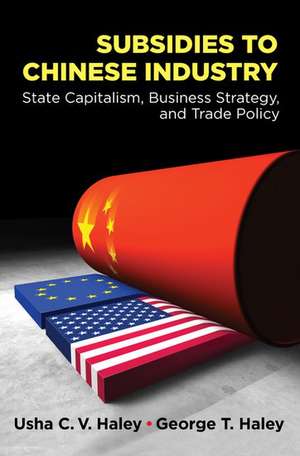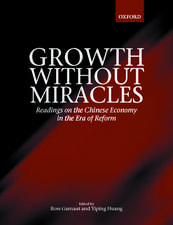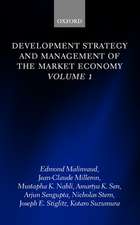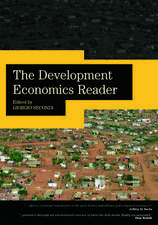Subsidies to Chinese Industry: State Capitalism, Business Strategy, and Trade Policy
Autor Usha C.V. Haley, George T. Haleyen Limba Engleză Hardback – 2 mai 2013
Preț: 328.66 lei
Preț vechi: 400.65 lei
-18% Nou
Puncte Express: 493
Preț estimativ în valută:
62.90€ • 65.42$ • 51.93£
62.90€ • 65.42$ • 51.93£
Carte tipărită la comandă
Livrare economică 03-09 aprilie
Preluare comenzi: 021 569.72.76
Specificații
ISBN-13: 9780199773749
ISBN-10: 0199773742
Pagini: 272
Dimensiuni: 243 x 161 x 18 mm
Greutate: 0.52 kg
Editura: Oxford University Press
Colecția OUP USA
Locul publicării:New York, United States
ISBN-10: 0199773742
Pagini: 272
Dimensiuni: 243 x 161 x 18 mm
Greutate: 0.52 kg
Editura: Oxford University Press
Colecția OUP USA
Locul publicării:New York, United States
Recenzii
A provocative new book* by Usha and George Haley, of West Virginia University and the University of New Haven respectively, points to another reason for China's industrial dominance: subsidies.
Notă biografică
UH: Asia Fellow, Ash Institute for Democratic Governance and Innovation, Harvard Kennedy School of Government and Research Associate, Economic Policy Institute in Washington, DCGH: Professor of Marketing & International Business, Director of Center for International Industry Competitiveness, University of New Haven















